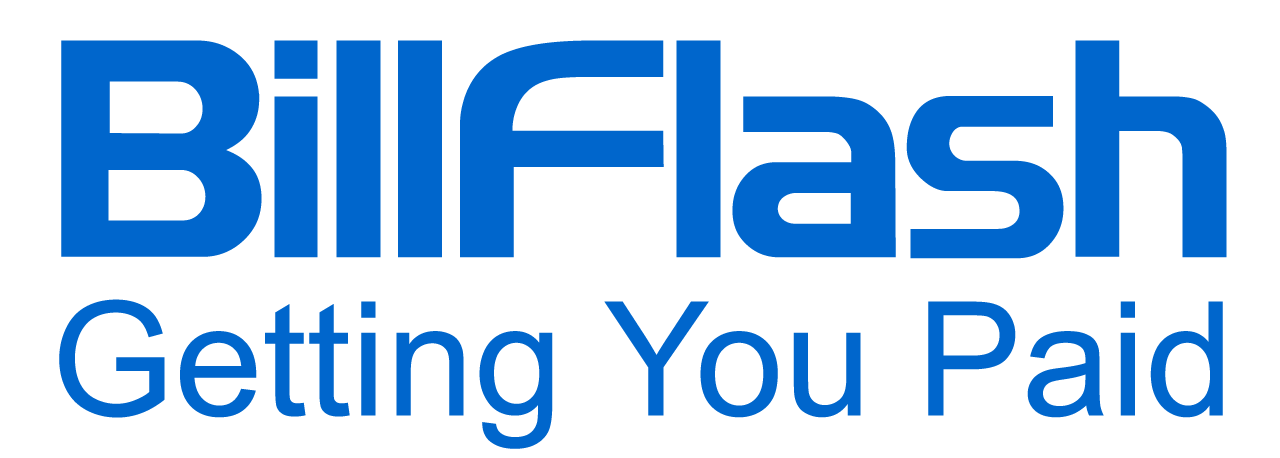Discover the essential role of a medical billing specialist in the healthcare industry.
Medical billing plays a crucial role in the healthcare industry, ensuring that healthcare providers receive proper compensation for their services. Behind this important function is a skilled professional known as a medical billing specialist. In this comprehensive guide, we will delve into the world of medical billing specialists, exploring their roles, responsibilities, required skills, educational requirements, career path, and the future of this field.
Understanding the Role of a Medical Billing Specialist

A medical billing specialist is responsible for handling various aspects of the billing process in healthcare facilities. Their primary task is to submit accurate claims and invoices to insurance companies and patients. This ensures timely reimbursement for the services provided by healthcare professionals. Additionally, medical billing specialists analyze medical codes, verify insurance coverage, and handle any billing disputes that may arise. Their role requires a high level of attention to detail and excellent organizational skills.
Medical billing specialists play a crucial role in the healthcare industry. This ensures that healthcare providers receive proper reimbursement for the services they provide. They are the bridge between healthcare professionals, insurance companies, and patients, ensuring that the billing process runs smoothly and efficiently.
Key Responsibilities of a Medical Billing Specialist
One of their key responsibilities is to accurately translate the provided medical documentation into relevant billing codes. This involves assigning the correct diagnostic and procedure codes to ensure that healthcare providers receive proper reimbursement. Furthermore, medical billing specialists are responsible for submitting claims to insurance companies and resolving any claim denials or rejections to ensure maximum reimbursement is received.
Accurate coding is essential in the medical billing process. They must have a deep understanding of medical terminology and coding systems to ensure that the codes are assigned accurately. They must stay updated with the latest coding guidelines and regulations to ensure compliance and accuracy.
In addition to coding and claims submission, medical billing specialists are also responsible for reconciling payments received, addressing patient inquiries regarding billing matters, and maintaining detailed records of financial transactions. Their role often involves collaborating with other healthcare professionals to ensure efficient and accurate patient billing.
Medical billing specialists are the point of contact for patients who have questions or concerns about their medical bills. They must possess excellent communication skills to explain billing procedures, insurance coverage, and payment options to patients in a clear and empathetic manner. They play a vital role in helping patients understand their financial responsibilities and resolving any billing-related issues they may encounter.
Skills Required for a Medical Billing Specialist
To excel as a medical billing specialist, certain skills are essential. Attention to detail is paramount, as even a minor error in coding or documentation could lead to claim denials, delayed payments, or errors in billing. Alongside attention to detail, strong analytical and problem-solving skills are required to investigate and resolve any billing discrepancies or claim issues that may arise.
Medical billing specialists must possess a deep understanding of medical terminology and coding systems. They must be able to accurately interpret medical documentation and assign the appropriate codes. This requires continuous learning and staying updated with the latest coding guidelines and regulations.
Furthermore, excellent communication skills are necessary, as medical billing specialists interact with a range of individuals, including healthcare professionals, insurance companies, and patients. They must be able to effectively communicate billing-related information, answer questions, and address concerns in a professional and compassionate manner.
In today's technology-driven healthcare environment, proficiency in using billing software and electronic health records (EHR) systems is essential. Medical billing specialists must be comfortable navigating and utilizing various software platforms to input and retrieve patient information, submit claims, and generate reports. They must also be able to adapt to new technologies and software updates to ensure efficient and accurate billing processes.
Overall, medical billing specialists play a vital role in the healthcare industry, ensuring that healthcare providers receive proper reimbursement and patients have a clear understanding of their financial responsibilities. Their attention to detail, analytical skills, and proficiency in coding and billing software make them an indispensable part of the healthcare team.
The Importance of Medical Billing in Healthcare
Efficient medical billing is essential for the smooth functioning of healthcare systems. Let's explore two vital aspects that highlight the importance of medical billing in the healthcare industry:
Ensuring Accuracy in Patient Billing
Accuracy in patient billing is crucial for maintaining trust between healthcare providers and patients. Medical billing specialists ensure that the services rendered to patients are correctly coded and translated into billing statements. This ensures that patients are billed appropriately and that insurance claims are processed without delays or disputes.
By closely reviewing medical records and ensuring that the correct codes are assigned, medical billing specialists help prevent errors that could lead to insurance claim denials or patients being charged for services they did not receive. Accurate patient billing not only promotes transparency but also safeguards the financial stability of healthcare providers.
Facilitating Efficient Healthcare Services
Medical billing specialists also contribute to the overall efficiency of healthcare services. By meticulously managing the billing process, they enable healthcare providers to focus on delivering high-quality care to their patients. The timely submission of claims and accurate invoicing ensures that healthcare facilities receive appropriate reimbursement. This enables them to maintain their financial stability and continue providing essential services.
Moreover, medical billing specialists act as a bridge between healthcare providers and insurance companies. They facilitate communication and resolving any billing discrepancies or disputes. Their expertise in navigating complex billing and coding systems ensures that the reimbursement process is streamlined. Ultimately, this reduces administrative burdens for healthcare facilities.
Educational Requirements for a Medical Billing Specialist

Becoming a medical billing specialist requires a combination of formal education and relevant certifications. Let's explore the educational requirements and the key courses and certifications that can help aspiring professionals enter and excel in this field.
Relevant Courses and Certifications
Many colleges, universities, and vocational schools offer programs specifically designed for medical billing specialists. These programs often cover topics such as medical coding, medical terminology, healthcare laws and regulations, insurance claims processing, and billing software proficiency. Completion of such programs provides students with a solid foundation in the field of medical billing.
Additionally, obtaining relevant certifications can significantly enhance the credibility of medical billing specialists. The Certified Professional Biller (CPB) certification, offered by the American Academy of Professional Coders (AAPC), is widely recognized and demonstrates proficiency in medical billing principles and practices. Similarly, the Certified Medical Reimbursement Specialist (CMRS) certification, offered by the American Medical Billing Association (AMBA), validates expertise in medical billing processes and compliance.
Continuing Education and Professional Development
The healthcare landscape is constantly evolving, with new coding systems, regulations, and technologies emerging. Therefore, it is crucial for medical billing specialists to engage in continuing education and professional development to stay abreast of industry changes. Attending conferences, workshops, and webinars focused on medical billing trends and advancements can provide valuable insights and expand the skill set of professionals in this field.
Furthermore, pursuing advanced certifications, such as the Certified Professional Medical Auditor (CPMA) or the Certified Revenue Cycle Professional (CRCP), can open doors to career advancement and specialization within the medical billing field.
Career Path for a Medical Billing Specialist
The career path for medical billing specialists offers various opportunities for growth and advancement. Let's explore the different stages of the career path, starting from entry-level positions to advanced roles and specialization options.
Entry-Level Opportunities
Upon completing the required education and obtaining relevant certifications, entry-level medical billing positions become accessible. These positions typically involve working under the supervision of more experienced medical billing specialists, familiarizing oneself with the industry's best practices and honing the necessary skills. Entry-level roles may encompass tasks such as data entry, claims submission, and handling basic billing inquiries.
Gaining practical experience in entry-level positions provides a solid foundation for career progression within the medical billing field and opens doors for further specialization and advancement.
Advancement and Specialization Options
As medical billing specialists gain experience and expertise, they can explore opportunities for advancement and specialization. Advancement often entails taking on supervisory or managerial roles within healthcare organizations, overseeing billing departments, and ensuring efficient billing operations.
Moreover, professionals who demonstrate exceptional knowledge and skills in specific areas, such as medical coding or compliance, can pursue specialization within the medical billing field. Specialization opens possibilities for higher-level roles, such as certified coding specialists, compliance officers, or revenue cycle managers.
Continued professional development and pursuing advanced certifications significantly enhance career prospects, allowing medical billing specialists to become valuable assets in the ever-evolving healthcare industry.
The Future of Medical Billing

The field of medical billing is constantly evolving, driven by advancements in technology and changes in healthcare regulations. Let's explore the future landscape of medical billing, focusing on technological advancements and emerging trends.
Technological Advancements in Medical Billing
Technology has revolutionized the healthcare industry, and the field of medical billing is no exception. Electronic health records (EHR) systems have streamlined the billing process. They allow for efficient data management and seamless communication between healthcare providers and billers. The integration of AI and machine learning in coding and claims processing holds the potential to expedite and improve accuracy.
Furthermore, the increasing adoption of telehealth services and remote patient monitoring necessitates advancements in billing practices to accommodate these new healthcare delivery models. Medical billing specialists need to stay informed about emerging technologies and adapt their skills to remain effective in their roles.
Emerging Trends in the Medical Billing Field
Several emerging trends are shaping the future of medical billing. One such trend is the shift towards value-based care. This is where reimbursement is tied to the quality and outcomes of healthcare services. Medical billing specialists will play a pivotal role in navigating this transition, analyzing performance metrics, and ensuring accurate reporting to optimize reimbursement based on patient outcomes.
Additionally, increased focus on transparency in healthcare pricing and billing is driving efforts towards clearer, simplified patient billing statements. Medical billing specialists will need to adapt to these evolving requirements. This means providing patients with clear and understandable billing information while complying with complex billing rules and regulations.
In conclusion, the role of a medical billing specialist is crucial in ensuring accurate and efficient billing practices within the healthcare industry. With their expertise in coding, claims submission, and financial record management, medical billing specialists contribute to the financial stability of healthcare providers and facilitate seamless healthcare services. As the field continues to evolve, professionals in this domain must stay updated to thrive in their roles.
Going Forward with BillFlash
With BillFlash, practices can go further by optimizing their revenue cycle, efficiently collecting past-due A/R, and providing patients with a convenient and secure payment experience. With a user-friendly interface and industry experts available for all your billing, payments and collections needs, BillFlash is the perfect solution for small practices.

